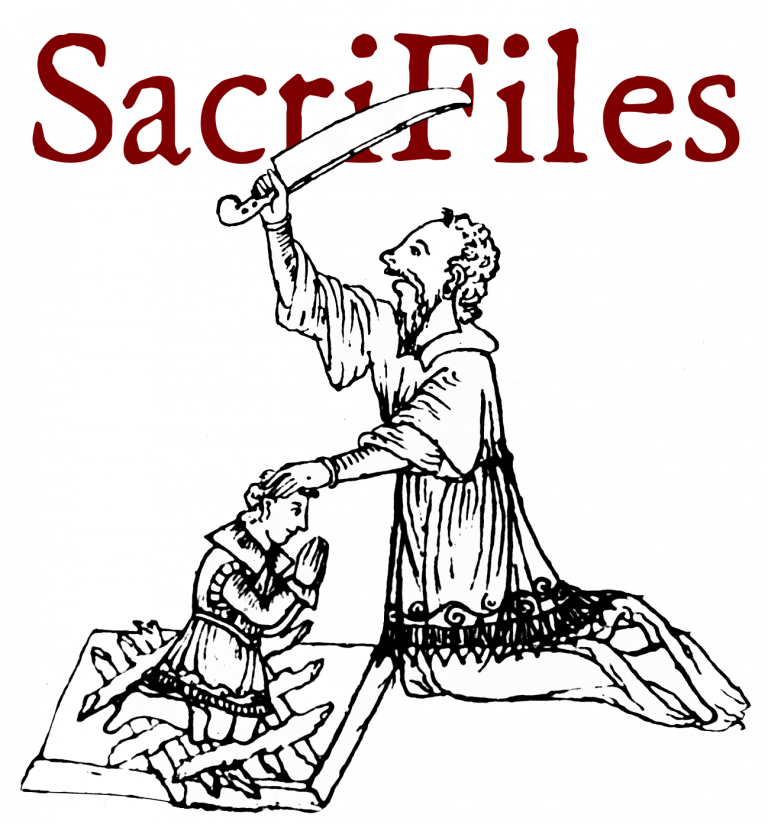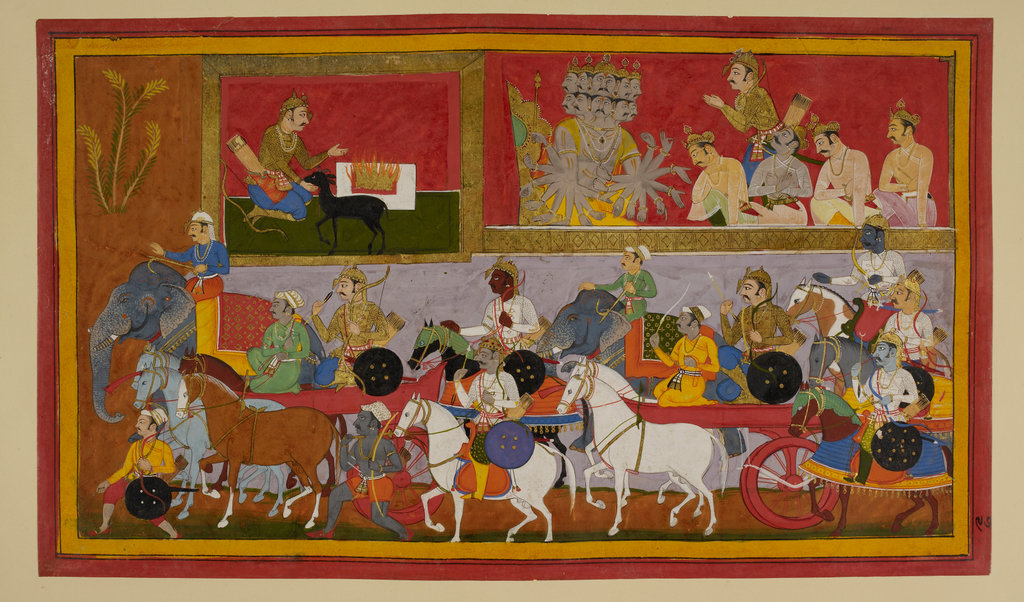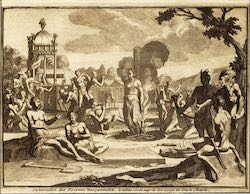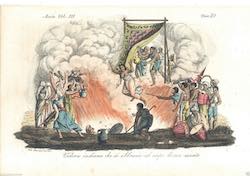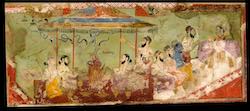In the palace, Rāvaṇa and his remaining brothers and sons are bowed down by grief and Rāvaṇa wonders how he can ever be victorious in this conflict, when so many demon champions have been slain. Another son, Indrajit, boasts that he will overcome Rāma and Lakṣmaṇa and sets out in his chariot, surrounded by other demons on elephants, horses and in chariots. In a separate chamber (the text actually says on the battlefield), he prepares offerings, seizing a young black goat by the neck, to the god of Fire in order to conjure up his most magical weapons and to make himself invisible.
Year: ca 1653
From: Ramayana [ms Add. 15297(1), fol. 97]
Location: British Library, London [from Udaipur]
Related Documents:
Funerailles des Femmes Benjanoises (1725)
from: van der Aa, P. La galerie agreable du monde. Tome premier des Indes Orientales, Leiden, c. 1725
http://www.columbia.edu/itc/mealac/pritchett/00routesdata/1800_1899/hinduism/sati/sati.html
Vedova indiana che si abbrucia (1816)
from: Ferrario, G. Il costumo antico e moderno, Florence, c.1816
http://www.columbia.edu/itc/mealac/pritchett/00routesdata/1800_1899/hinduism/sati/sati.html
Les veuves du Cormandel (1725)
from: van der Aa, P. La galerie agreable du monde. Tome premier des Indes Orientales, Leiden, c. 1725
http://www.columbia.edu/itc/mealac/pritchett/00routesdata/1800_1899/hinduism/sati/sati.html
Snake Sacrifice [1690]
from: Udaipur, Rajasthan state, Mewar, India
Henri Vever Collection, Freer|Sackler gallery at the Smithsonian Institution
